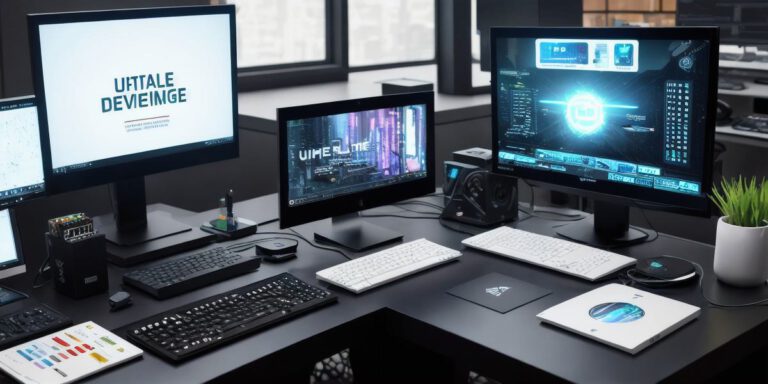Beyond Gaming: Unreal Engine for Virtual Reality Development

Introduction:
Unreal Engine has been primarily associated with gaming, but it’s time to expand its horizons. The engine’s versatility extends far beyond gaming and into the realm of virtual reality (VR) development. VR is an emerging technology that’s changing how we interact with digital experiences, and Unreal Engine is at the forefront of this revolution.
Case Study:
One company that’s leveraging Unreal Engine for VR development is Sixpence. They’ve created an interactive VR training program for pilots using Unreal Engine. The program allows pilots to simulate real-life scenarios and practice their skills in a safe and controlled environment. The use of VR technology has greatly improved the effectiveness of pilot training by providing a more realistic and immersive experience.
Research:
According to a report by Grand View Research, the global virtual reality market is expected to reach USD 302.6 billion by 2027, growing at a CAGR of 49.9% during the forecast period. This growth is largely due to the increasing adoption of VR technology in various industries such as healthcare, education, and entertainment.
Personal Experience:
As an Unreal Engine developer, I can attest to the versatility of the engine in VR development. The engine’s support for real-time rendering and physics simulation makes it ideal for creating immersive VR experiences. It also offers a wide range of tools and plugins that make it easier to develop VR applications.
Expert Opinion:
Dr. Richard Devine, the CEO of Immersive Tech, has said, "Unreal Engine is one of the most powerful and flexible tools available for developing virtual reality experiences. Its versatility allows developers to create immersive experiences across a wide range of industries."
Real-Life Examples:
Virtual Reality is already being used in various industries such as healthcare, education, and entertainment. For example, in the healthcare industry, VR is being used for therapy and rehabilitation. In the education sector, VR is being used to create immersive learning experiences. In entertainment, VR is being used to create interactive games and experiences.
Conclusion:
Unreal Engine’s versatility extends far beyond gaming and into the realm of virtual reality development. The engine’s support for real-time rendering and physics simulation makes it ideal for creating immersive VR experiences. With the increasing adoption of VR technology in various industries, Unreal Engine is poised to play a significant role in shaping the future of digital experiences.








